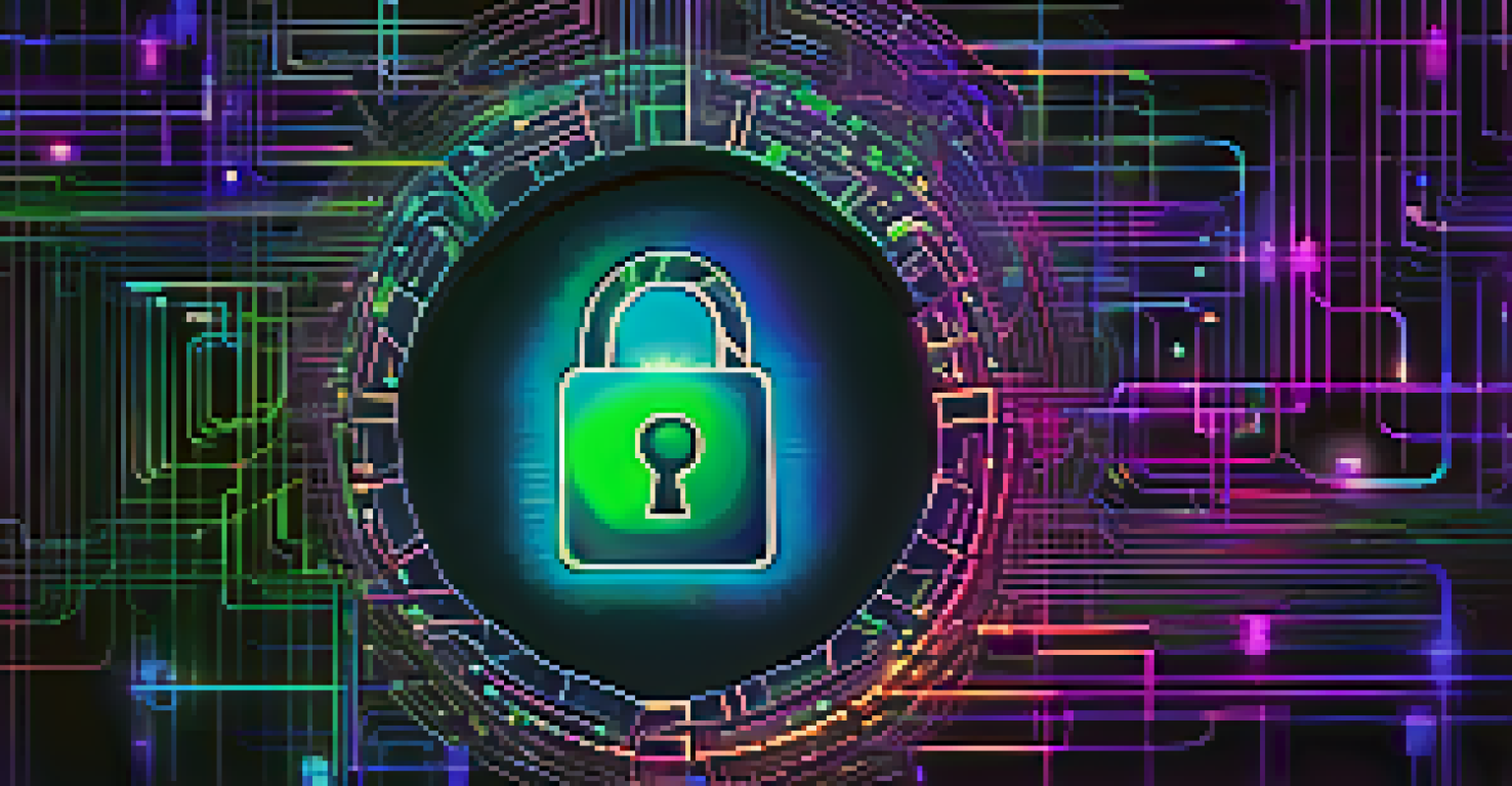The Role of Smart Contracts in Digital Identity Verification

Understanding Digital Identity Verification and Its Importance
Digital identity verification is the process of confirming an individual's identity online. In today's digital world, where interactions happen at the click of a button, ensuring that a person is who they claim to be is crucial. This verification helps in preventing fraud and identity theft, which are increasingly common in online transactions.
In a digital world, trust is built on the foundation of verified identities.
For example, consider a scenario where you want to open a bank account online. The bank needs to verify your identity to comply with regulations and to protect against fraud. This is where effective digital identity verification comes into play, ensuring that the right person is accessing sensitive information.
Moreover, as more services transition online, the need for robust digital identity solutions grows. With the rise of remote work and online services, having a secure and reliable way to verify identities is essential for both businesses and individuals.
What Are Smart Contracts and How Do They Work?
Smart contracts are self-executing contracts with the terms of the agreement directly written into code. They run on blockchain technology, which ensures transparency and security. When certain conditions are met, these contracts automatically execute actions without the need for intermediaries, making transactions quicker and more efficient.

Imagine a vending machine: you insert money, select your item, and the machine automatically dispenses it. Smart contracts work similarly but in a digital environment. They eliminate the need for a middleman, reducing costs and the potential for human error.
Importance of Digital Identity Verification
Digital identity verification is essential to prevent fraud and ensure secure online transactions.
In the context of digital identity verification, smart contracts can automate the verification process by executing predefined conditions. For instance, they can check if an individual’s credentials are valid and only grant access if conditions are met, enhancing security.
How Smart Contracts Enhance Digital Identity Verification
Smart contracts enhance digital identity verification by providing a secure and tamper-proof way to store and manage identities. Because they operate on blockchain technology, the data is immutable, meaning once it's recorded, it can't be changed without consensus. This feature significantly reduces the risk of identity fraud.
Smart contracts are the future of digital transactions, ensuring both security and efficiency.
For example, a smart contract could store a user's identity credentials securely and verify them against trusted sources. If everything checks out, access is granted seamlessly. This process not only speeds up verification but also builds trust among users and service providers.
Additionally, smart contracts can facilitate decentralized identity solutions, allowing users to control their data. Instead of relying on centralized authorities to verify identities, individuals can manage their own credentials, leading to increased privacy and security.
The Role of Blockchain in Smart Contracts and Identity Verification
Blockchain serves as the backbone for smart contracts, providing a decentralized and secure environment for identity verification. The distributed nature of blockchain means that multiple copies of the same data exist across various nodes, making it extremely difficult for hackers to alter information.
Consider a library: if one book is misplaced, copies of that book in other libraries ensure that the original content remains intact. Similarly, blockchain's redundancy protects data integrity. This is particularly important in identity verification, where accurate data is paramount.
Smart Contracts Streamline Verification
Smart contracts automate and enhance the identity verification process, providing security and efficiency.
Moreover, blockchain enhances transparency. All transactions are recorded on the blockchain, allowing for traceability. If there’s ever a dispute regarding identity verification, the immutable record can provide clarity and assurance to all parties involved.
Challenges in Implementing Smart Contracts for Identity Verification
While smart contracts offer numerous advantages, there are challenges in implementing them for identity verification. One significant hurdle is the need for standardized protocols. Different organizations may have varying requirements for identity verification, leading to inconsistencies in how smart contracts are applied.
Additionally, the legal landscape surrounding smart contracts is still evolving. Questions about enforceability and jurisdiction can complicate matters. For instance, if a smart contract is executed in one country but involves parties from others, legal complications can arise.
Lastly, user adoption is crucial. Many individuals may not fully understand how smart contracts work, leading to hesitancy in using them. Education and awareness are essential to bridge the gap and encourage widespread acceptance of this technology.
Future Trends of Smart Contracts in Digital Identity Verification
The future of smart contracts in digital identity verification looks promising, with advancements in technology paving the way for more efficient solutions. As blockchain technology matures, we can expect improved interoperability between different smart contract platforms, making it easier for organizations to adopt these solutions.
Moreover, the rise of decentralized identity (DID) systems is set to transform how identities are verified online. These systems allow individuals to own and manage their identity data without relying on central authorities, enhancing privacy and security.
Blockchain Ensures Data Integrity
Blockchain technology underpins smart contracts, offering a decentralized and tamper-proof method for identity verification.
As regulatory frameworks evolve and user education increases, we will likely see broader adoption of smart contracts for identity verification. The combination of security, transparency, and user control makes this technology a compelling choice for the future.
Conclusion: Embracing Smart Contracts for Secure Identity Verification
In conclusion, smart contracts hold significant potential for revolutionizing digital identity verification. By providing a secure, efficient, and user-centric approach, they can address many challenges currently faced by traditional identity verification methods. The enhanced security and transparency offered by smart contracts can lead to greater trust between users and service providers.
As we move forward, embracing this technology could lead to a more secure digital landscape. Organizations that adopt smart contracts for identity verification may not only streamline their processes but also enhance customer satisfaction by providing a seamless experience.

Ultimately, the integration of smart contracts into identity verification systems represents an exciting step toward a more secure and efficient digital future. It's a journey worth taking for all stakeholders involved.